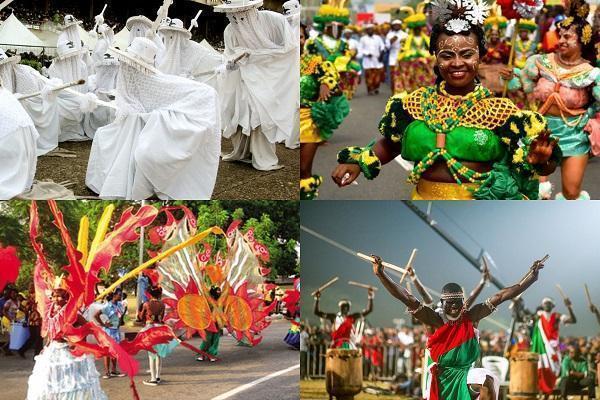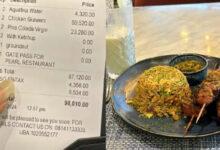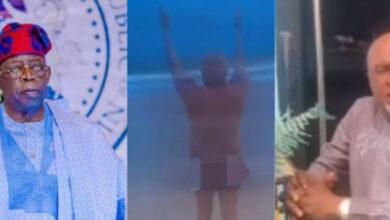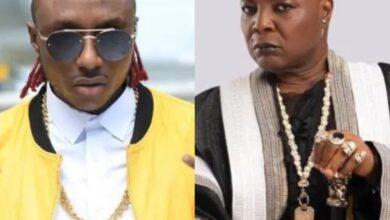
15 Best Cultural Dances in Nigeria
Nigeria, known as the Giant of Africa, is a diverse nation brimming with rich cultural heritage. One of the most captivating aspects of Nigerian culture is its traditional dances. These dances reflect the country’s ethnic diversity, history, and social fabric.15 Best Cultural Dances in Nigeria
From the rhythmic movements to the colorful attire, Nigerian dances are a celebration of life, love, and unity. In this article, we will take you on a journey through the 15 best cultural dances in Nigeria, offering a glimpse into the enchanting world of Nigerian dance forms.
👉 Relocate to Canada Today!
Live, Study and Work in Canada. No Payment is Required! Hurry Now click here to Apply >> Immigrate to CanadaRead Also: 15 Best Organic Soap for Glowing Skin in Nigeria
The 15 Best Cultural Dances in Nigeria are:
1. Bata Dance
Originating from the Yoruba tribe, the Bata dance is a vibrant and energetic performance. Accompanied by the melodious beats of the Bata drums, dancers showcase intricate footwork and graceful movements. This dance form is often performed during festivals, weddings, and other cultural celebrations in southwestern Nigeria. The Bata dance is not only a visual delight but also serves as a medium for storytelling and preserving the Yoruba cultural heritage.InformationGuideNigeria
2. Ekombi Dance
The Ekombi dance is a captivating dance style performed by the Efik people of Cross River State. It is characterized by the graceful movements of female dancers adorned in colorful attires, beads, and headgear. The dance showcases the elegance and poise of Efik women and it is often performed during important ceremonies and cultural festivals. Ekombi dance represents the beauty, grace, and femininity of the Efik culture.
Read Also: 15 Best Contraceptive Pills in Nigeria
3. Agaba Dance
The Agaba dance is a cultural treasure of the Idoma people from Benue State. It is a warrior dance that symbolizes strength and valor.NYSC Portal
Dancers adorned in warrior attire, complete with shields and spears, perform rhythmic movements accompanied by the sounds of traditional instruments. The Agaba dance is not only a form of entertainment but also a means of passing down stories of bravery and the Idoma people’s martial traditions.
4. Nkwa Umuagbogho Dance
The Nkwa Umuagbogho dance originates from the Igbo tribe in southeastern Nigeria. It is a women’s dance performed by young maidens during festivals and social gatherings. The dancers dress in colorful traditional attires and move in synchrony, creating a mesmerizing sight. Nkwa Umuagbogho celebrates the beauty, grace, and purity of Igbo women, and it serves as a platform for young maidens to showcase their talents and cultural pride.
5. Tiv Kwagh-Hir Dance
The Tiv Kwagh-Hir dance is an integral part of the Tiv people’s culture in Benue State. It combines dance, music, and storytelling to create a captivating performance.JAMB Portal
👉 Relocate to Canada Today!
Live, Study and Work in Canada. No Payment is Required! Hurry Now click here to Apply >> Immigrate to CanadaDancers wear elaborate masks and costumes, representing various characters from Tiv folklore. With rhythmic movements and animated gestures, they enact traditional stories, conveying moral lessons and historical events. The Tiv Kwagh-Hir dance is a vibrant and engaging form of cultural expression.
Read Also: 15 Best Bank for POS business in Nigeria
6. Yankari Dance
The Yankari dance is a popular dance style among the Hausa people in northern Nigeria. It is performed during special occasions, such as weddings, naming ceremonies, and cultural festivals. The dance involves intricate footwork and energetic movements accompanied by the rhythmic beats of drums and flutes. Yankari dance showcases the grace, hospitality, and exuberance of the Hausa culture, providing a glimpse into the vibrant traditions of northern Nigeria.
7. Atilogwu Dance
The Atilogwu dance is a dynamic and acrobatic dance form performed by the Igbo people, particularly the Mbaise community. It is a highly energetic dance that combines rhythmic footwork, synchronized movements, and breathtaking acrobatics.10 social challenges in Nigeria
Dancers often wear colorful traditional outfits and adorn themselves with feathers and bells to enhance the visual spectacle. The Atilogwu dance is not only a form of entertainment but also a symbol of bravery, strength, and unity within the Igbo culture.
8. Igede Dance
The Igede dance originates from the Igede people in Benue State. It is a lively and spirited dance performed during significant occasions like harvest festivals, weddings, and cultural gatherings. The dancers exhibit fast-paced movements, accompanied by the melodious sounds of traditional musical instruments like the Igede flute and drums. The Igede dance showcases the joy, resilience, and communal spirit of the Igede people, creating an infectious atmosphere of celebration.What Are Security Challenges
Read Also: Top Best 15 Kids Dancers in Nigeria
9. Bambuka Dance
The Bambuka dance is a popular dance style among the Nupe people in Niger State. It is performed during social events, ceremonies, and traditional festivals. Dancers, dressed in colorful flowing robes, move gracefully while striking their walking sticks to create rhythmic beats. The Bambuka dance embodies the cultural identity and heritage of the Nupe people, reflecting their gracefulness, unity, and social harmony.
10. Omugo Dance
The Omugo dance is a traditional dance form of the Igala people in Kogi State. It is a women’s dance performed during weddings, royal ceremonies, and cultural festivals. The dancers, dressed in elaborate traditional attire, showcase intricate footwork and graceful hand movements. The Omugo dance is a celebration of womanhood, femininity, and the importance of women in the Igala society. It exemplifies elegance, grace, and cultural pride.
11. Ekwe Dance
The Ekwe dance is a captivating cultural dance performed by the Anambra people. It is characterized by the rhythmic beats of the Ekwe drum and the mesmerizing movements of the dancers. The performers, adorned in traditional attire, skillfully coordinate their steps, creating an enchanting display of unity and coordination. The Ekwe dance is often performed at traditional weddings, community festivals, and cultural events, embodying the spirit and heritage of the Anambra people.200 Romantic Love Message
12. Ojoge Dance
The Ojoge dance is a vibrant dance style performed by the Ondo people of Ondo State. It is a captivating dance characterized by energetic movements, synchronized steps, and rhythmic clapping. Dancers, dressed in colorful traditional outfits, create a lively and celebratory atmosphere. The Ojoge dance is a means of entertainment and cultural expression, bringing together the community to celebrate joyous occasions and express their cultural identity.
Read Also: 10 Best Tiktok Dancers in Nigeria
13. Sharo Dance
The Sharo dance is a traditional dance form practiced by the Fulani people, particularly in northern Nigeria. It is associated with the Sharo festival, where young men compete to prove their bravery and readiness for marriage. The dance involves intricate footwork, synchronized movements, and the use of traditional musical instruments like flutes and drums. The Sharo dance represents the courage, endurance, and cultural values of the Fulani people.105 Good Morning Love Messages
14. Eyo Masquerade Dance
The Eyo masquerade dance is a unique and iconic dance form celebrated by the people of Lagos. It is performed during special occasions and festivals, particularly the Eyo Festival, which honors a deceased prominent figure. Dancers, adorned in white robes and colorful hats, move gracefully while showcasing their cultural regalia. The Eyo masquerade dance is a symbol of unity, remembrance, and cultural heritage in the bustling city of Lagos.
15. Ijele Dance
The Ijele dance is a grand and elaborate dance form performed by the Igbo people, specifically the Ndokwa community. It is a ceremonial dance that embodies power, prestige, and cultural significance. The dance features a massive, intricately designed masquerade known as Ijele, which represents the spirit of the community. Dancers move in synchronized patterns, showcasing the magnificence and richness of the Ndokwa culture.
Conclusion
Nigeria’s cultural dances are a testament to the nation’s diversity, history, and vibrant traditions. From the energetic Bata dance to the graceful Ekombi dance, each dance form tells a unique story and carries profound cultural significance. These dances serve as a medium for preserving heritage, expressing joy, and fostering communal unity. They are a celebration of Nigeria’s ethnic mosaic and a window into the rich tapestry of its people. Through the 15 best cultural dances in Nigeria, we glimpse the soul, rhythm, and artistic brilliance that define this extraordinary nation.
Check JAMB Result
Check and Confirm: How much is Dollar to Naira








